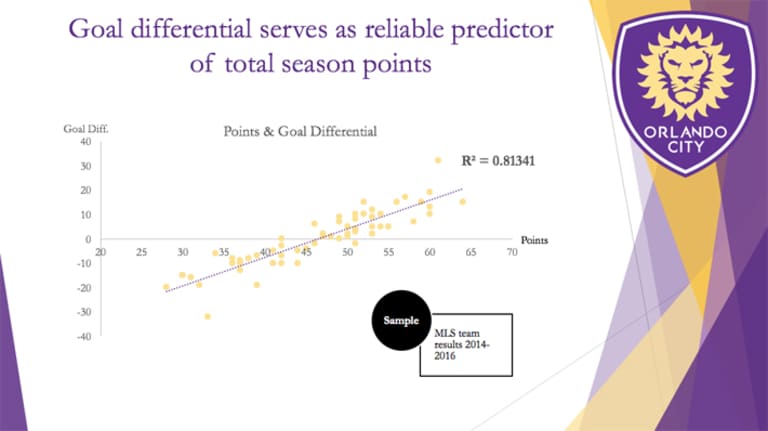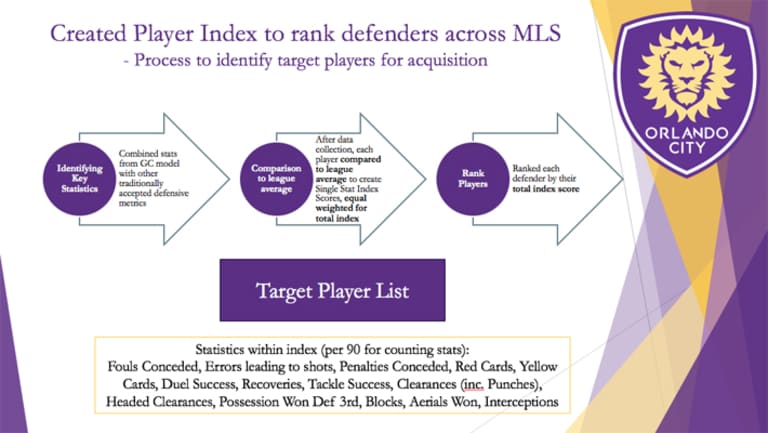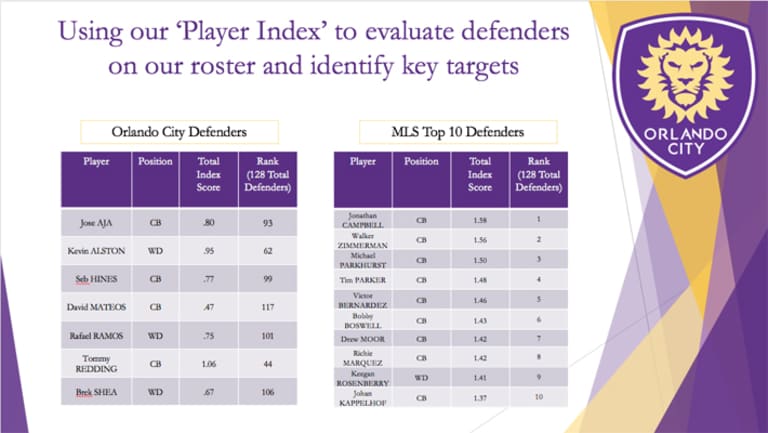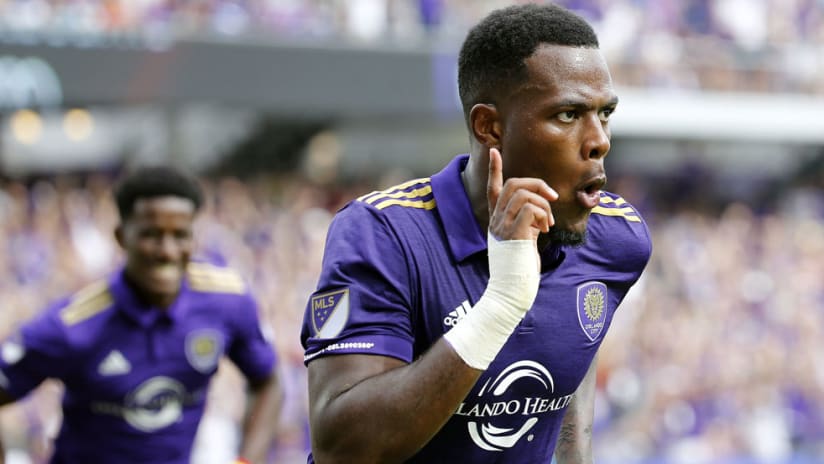Every team that ends the regular season below the red line, and out of the MLS Cup Playoffs, spends the whole offseason trying to figure out a way to climb above it and thus get a chance to win MLS Cup the following year.
Recently, students at Columbia University have been lying awake at night trying to figure out a way to do the same.
Five teams of students received the case on how to bring their assigned MLS teams from below the red line to above it. It was a part of Columbia University's Masters in Sports Management major, specifically in their course on Analytics in Global Sport. The university partnered with sports analytics firm Opta to put together the course, which is in its second year.
“We’ve had another excellent year partnering with Columbia University, working alongside industry-influencer Bret Myers, and enhancing many of the components from last semester in our continued effort to support and evolve the analytics community,” said Oliver Miller-Farrell, Business Development Director for the Opta/Perform Group.
“The involvement of guest lectures from our club partners, and feedback from the esteemed panel of judges, provided students with insight into the realities of the industry and use of analytics in a club environment. The case competition this year was a true reflection of a situation many MLS clubs find themselves in when evaluating their pursuit of the MLS playoffs in the upcoming season.”
Each team was given one team to take to the MLS Cup Playoffs, starting on October 31 of last year. The groups presented their solutions last week at Columbia to a panel of five judges, including New York City FC Director of Player Recruitment David Lee and MLS Vice President of Competition Jeff Agoos.
Not every team that finished below the red line was included – sorry Portland Timbers, Vancouver Whitecaps FC and New England Revolution fans – but every team that presented had a clear idea of what they needed to accomplish to reach their goals.
They all quickly pointed out the average points needed to get above the red line. To get to that number of points, many needed to improve their goal differential, using Opta's suite of data tools to evaluate which specific metrics could help support that.

A slide from the winning presentation showing how goal differential correlates to points
Some teams, like the San Jose Earthquakes and Houston Dynamo, pointed out that their defense was solid but that their attack was lacking, while others, like Orlando City SC, Columbus Crew SC and the Chicago Fire, were the exact opposite.
With each group interrogating a different team, there were a range of methods on how to improve that team's performance. Groups identified styles of play they wanted to replicate, specific statistic categories that needed to be improved, new statistics to identify how to create more goals or concede less. Many even created their own models to evaluate the relationship between Opta metrics and goal output.
Ultimately the team that was assigned Orlando City won, due to their holistic look at how the Lions could improve. Factoring in performance metrics and MLS salary rules, they produced a concise, data-driven strategy to improve their struggling defense, and even ventured to comment on Orlando's climate and fanbase when considering player acquisitions.
They identified key statistics that defenders would need to improve their struggling defense and created an index to rank them.

A slide from the winning presentation showing how they identified players to target
It was clear that players such as David Mateos, Seb Hines and Jose Aja were underperforming and that Jonathan Campbell and Walker Zimmerman were among the best center backs in MLS in 2016.

A slide from the winning presentation showing Orlando City defenders and the top defenders in MLS
One other player they highlighted as a player to target just happened to be Will Johnson, who they had as the 16th-best midfielder in MLS last year. Of course, Orlando acquired the Canadian international in real life and he has more than lived up to his billing.
With these acquisitions, and some key subtractions, the team estimated based on the attributes of their new additions that their team would improve by five points for the 2017 season, giving them a better chance of getting above the red line.













